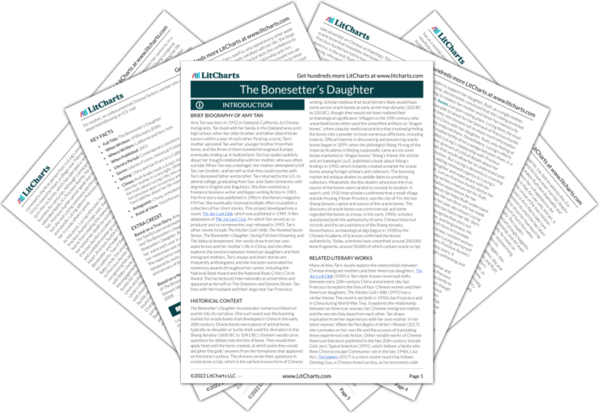These bachelors are the Young brothers, the older of whom will eventually become Ruth’s father. The conflict Sister Yu refers to is the Chinese Civil War, which lasted from 1927 to 1949. At this point, the victorious Chinese Communist Party gained control of mainland China and formed the People’s Republic of China. The second phase of the war began after World War Two and is known as the Chinese Communist Revolution. The novel interweaves details about the ongoing political turmoil to emphasize the immense difficulties LuLing endured before she emigrated to the U.S. Not only is she suffering from unresolved grief, but she is doing so against a backdrop of political and ideological chaos.
